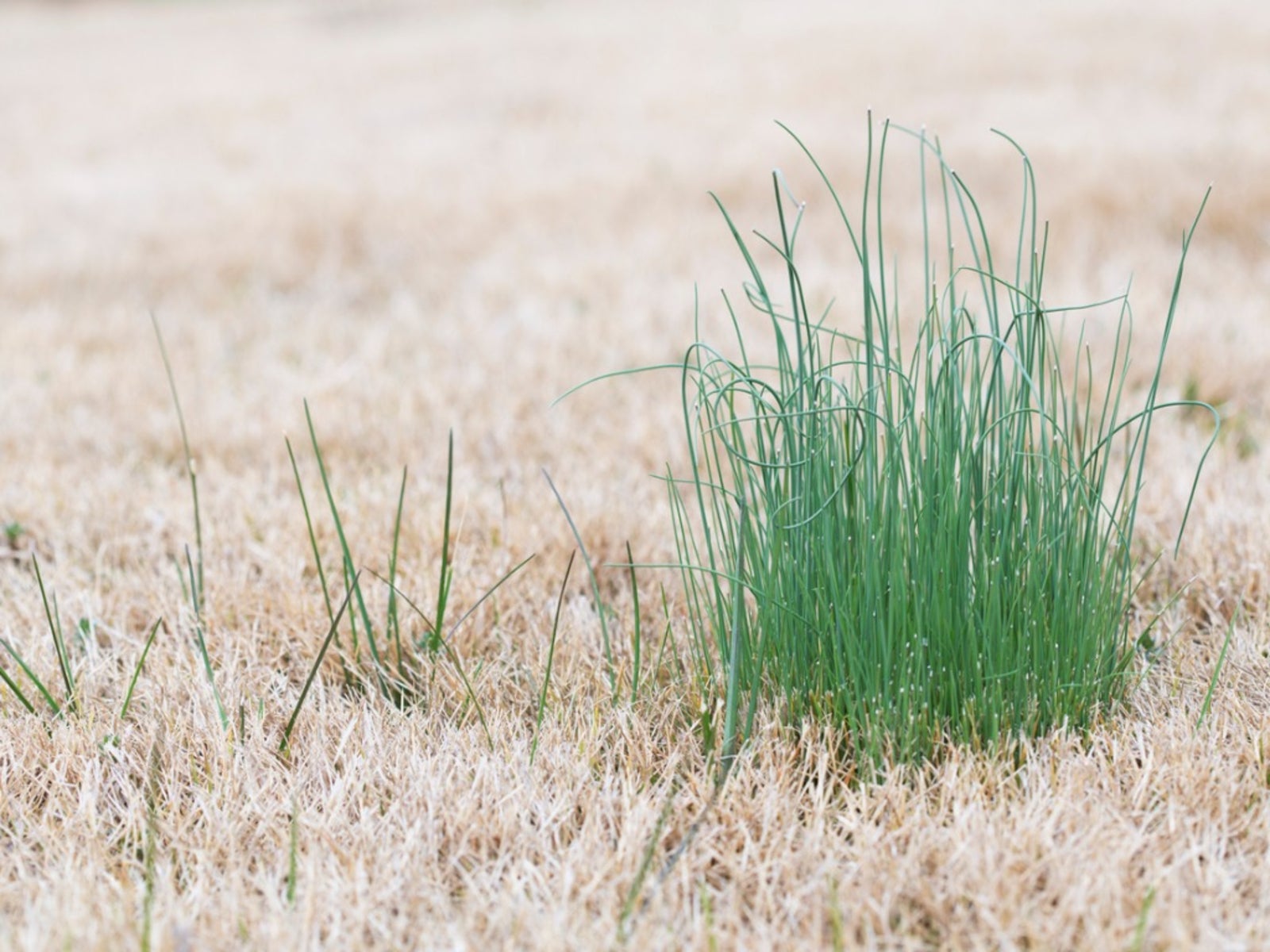Killing Wild Onions - Tips For Getting Rid Of Wild Onion Plants


Wild onions (Allium canadense) can be found in many gardens and lawns, and wherever they are found, a frustrated gardener is sure to be found nearby. These difficult to control weeds are the bane of many gardens, but with determination and a little hard work, you can get rid of wild onions once and for all.
Identification of Wild Onion Plants
Wild onion weeds grow in clumps and are typically found in flower beds or near difficult to mow areas, though they can also grow in the lawn. Wild onions can be identified by their thin, waxy, spear-like leaves. Wild onion is often confused with its close cousin, wild garlic.
Wild onions have flat leaves while wild garlic has round leaves. Wild onions grow from white bulbs. They will either spread by forming bulblets on their bulbs, creating larger clumps, or by seed, spreading the wild onion plants to other parts of the garden. Wild onions are edible but only if they have not been treated with a chemical herbicide.
Methods to Get Rid of Wild Onions
Wild onion plants are difficult to control for two reasons.
- First, because they grow from bulbs and bulblets, which break apart from each other easily, so it is difficult to remove an entire clump without leaving some roots behind.
- Second, the thin waxy leaves make it difficult for herbicides to stick to the leaves and, even if it does, the wax makes it difficult for the herbicide to penetrate into the wild onion plant.
If ever there was a plant made to survive weed removal methods, wild onion weed is it. For these reasons, wild onion control needs to be a done with a combination of methods. It is best to take steps to get rid of wild onions in the spring, before the plants have a chance to go to seed, or in the fall, which will weaken any surviving wild onion plants, making it more difficult for them to survive through the winter. Killing wild onions starts with removing as much of the clump of wild onions as possible.
Do not try to pull the clump of wild onions out of the ground. The small bulblets are designed to pull away from the mother plant when pulled, which leaves extra bulbs in the ground that will rapidly regrow. Instead, dig the clump out of the ground with a spade or a trowel.
Throw the entire clump away. Do not try to shake excess dirt off back into the hole and do not compost. If you do this will only re-spread the wild onion bulblets back into your garden. The next step to kill wild onions is to treat the area with either a non-selective herbicide (as a last resort) or boiling water. Both boiling water and non-selective herbicide will kill any plant it touches, so keep this in mind in regards to surrounding plants.
Gardening tips, videos, info and more delivered right to your inbox!
Sign up for the Gardening Know How newsletter today and receive a free copy of our e-book "How to Grow Delicious Tomatoes".
After removing the wild onion plants, keep a close eye on the area and repeat the process if any new wild onions start to grow. Due to the hardy, break-away bulblets, you can expect that they will grow back at least one time. If you are unable to treat the area or are keeping the wild onion plants as an edible, keep the plants trimmed (higher for growing as an edible and near the ground if unable to treat as described). This will prevent the wild onion from spreading to other parts of your yard through seeds.

Heather Rhoades founded Gardening Know How in 2007. She holds degrees from Cleveland State University and Northern Kentucky University. She is an avid gardener with a passion for community, and is a recipient of the Master Gardeners of Ohio Lifetime Achievement Award.
-
 Looking For Plants To Give You The Soft And Fuzzies? Try These 5 Fuzzy Leaf Plant Options
Looking For Plants To Give You The Soft And Fuzzies? Try These 5 Fuzzy Leaf Plant OptionsLovers of texture, drama, silver foliage and tactile plants will adore these special sensory garden additions. These fuzzy leaf plant options will leave you all aglow
By Susan Albert
-
 Get Ready For A Summer Of Hummers! Grow These Full Sun Hummingbird Plants and Flowers
Get Ready For A Summer Of Hummers! Grow These Full Sun Hummingbird Plants and FlowersIf you’re lucky enough to enjoy a sunny backyard, make sure you are maxing out on your pollinator opportunities and grow these full sun hummingbird plants and flowers
By Tonya Barnett